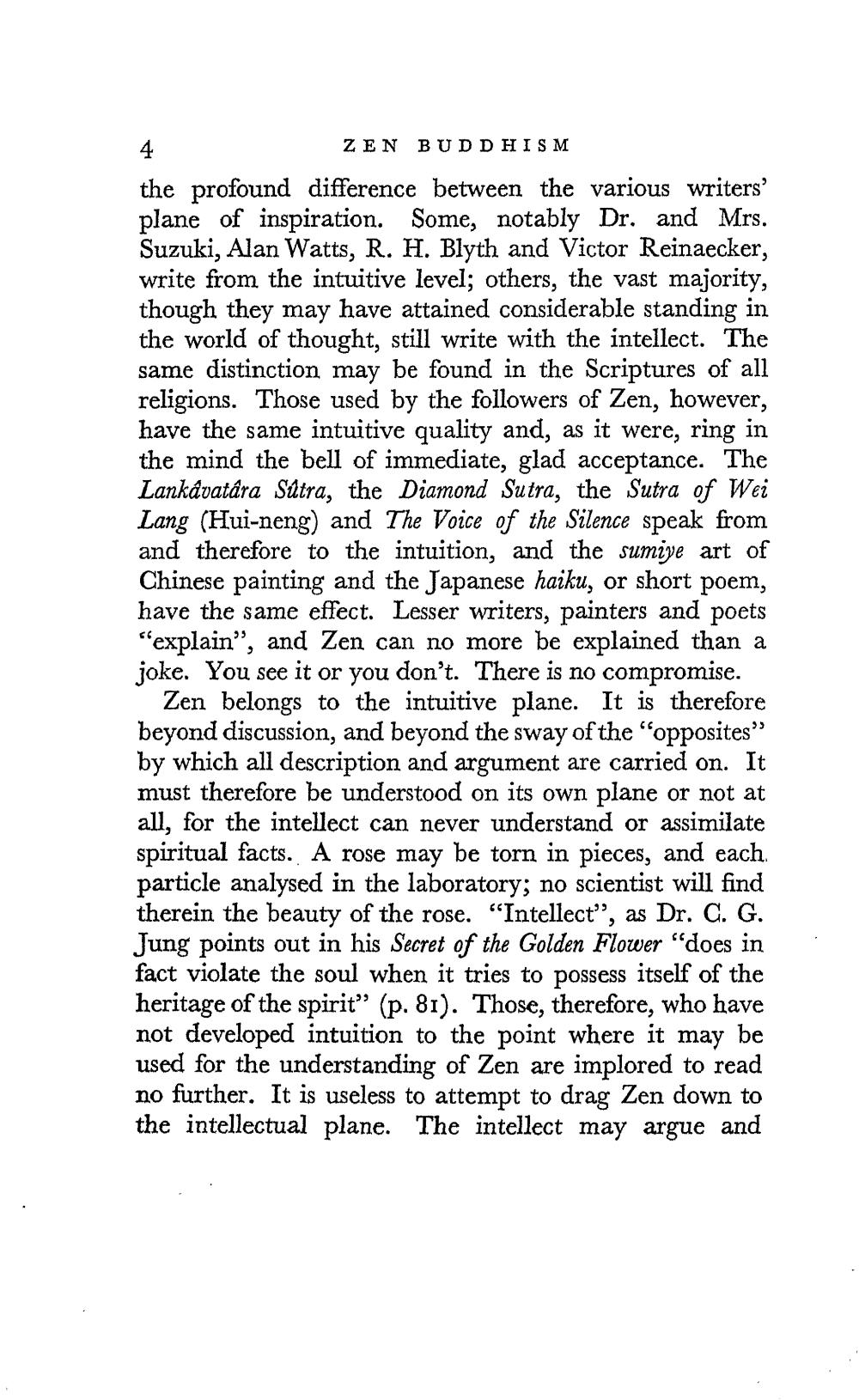________________
ZEN BUDDHISM
the profound difference between the various writers' plane of inspiration. Some, notably Dr. and Mrs. Suzuki, Alan Watts, R. H. Blyth and Victor Reinaecker, write from the intuitive level; others, the vast majority, though they may have attained considerable standing in the world of thought, still write with the intellect. The same distinction may be found in the Scriptures of all religions. Those used by the followers of Zen, however, have the same intuitive quality and, as it were, ring in the mind the bell of immediate, glad acceptance. The Lankávatára Sútra, the Diamond Sutra, the Sutra of Wei Lang (Hui-neng) and The Voice of the Silence speak from and therefore to the intuition, and the sumiye art of Chinese painting and the Japanese haiku, or short poem, have the same effect. Lesser writers, painters and poets "explain", and Zen can no more be explained than a joke. You see it or you don't. There is no compromise.
Zen belongs to the intuitive plane. It is therefore beyond discussion, and beyond the sway of the "opposites" by which all description and argument are carried on. It must therefore be understood on its own plane or not at all, for the intellect can never understand or assimilate spiritual facts. A rose may be torn in pieces, and each. particle analysed in the laboratory; no scientist will find therein the beauty of the rose. "Intellect”, as Dr. C. G. Jung points out in his Secret of the Golden Flower "does in fact violate the soul when it tries to possess itself of the heritage of the spirit” (p. 81). Those, therefore, who have not developed intuition to the point where it may be used for the understanding of Zen are implored to read no further. It is useless to attempt to drag Zen down to the intellectual plane. The intellect may argue and




